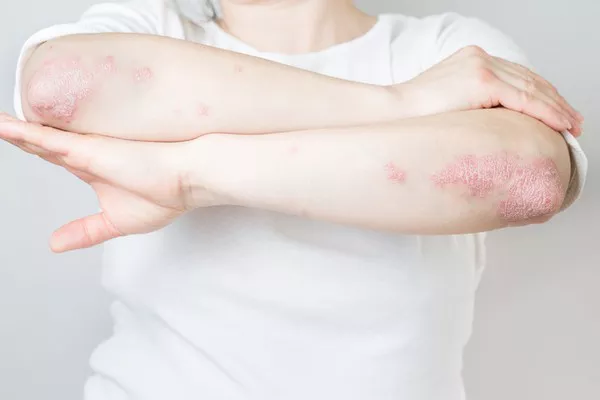Psoriasis is a chronic autoimmune condition characterized by the rapid buildup of skin cells, leading to the formation of scales and red patches that can be itchy and sometimes painful. For those diagnosed with psoriasis, the quest for effective treatment is often paramount. However, a common question that arises is whether psoriasis can resolve itself without any medical intervention. This article aims to delve into this query, exploring the factors that may influence the natural course of psoriasis and the potential outcomes for those who choose not to pursue conventional treatment.
Understanding Psoriasis: A Complex Condition
Before delving into the possibility of psoriasis remission without treatment, it is essential to understand the nature of the condition itself. Psoriasis is not merely a skin disorder; it is a complex autoimmune disease that involves a dysregulated immune response. In individuals with psoriasis, the immune system mistakenly attacks healthy skin cells, leading to inflammation and the rapid proliferation of skin cells.
The exact cause of psoriasis remains elusive, but it is believed to involve a combination of genetic, environmental, and immunological factors. Triggers such as stress, infections, certain medications, and even weather changes can exacerbate symptoms in susceptible individuals.
The Course of Psoriasis: Flares and Remissions
Psoriasis is known for its unpredictable nature, characterized by periods of exacerbation (flares) followed by periods of relative calm (remissions). During a flare-up, symptoms such as redness, itching, and scaling can worsen, making it challenging for individuals to manage their condition effectively. However, during remission, symptoms may subside or become less severe, providing temporary relief.
The duration and frequency of flares and remissions can vary significantly from person to person. Some individuals may experience frequent and prolonged flare-ups, while others may have milder symptoms with more extended periods of remission. Understanding these fluctuations is crucial in assessing the potential for psoriasis to resolve without treatment.
Factors Influencing Psoriasis Remission
Several factors may influence the likelihood of psoriasis remission without treatment:
1. Genetics: Family history plays a significant role in psoriasis, with genetic predisposition being a key factor in determining disease susceptibility. Some individuals may have genetic variations that make them more prone to experiencing spontaneous remission.
2. Immune Response: The immune system plays a central role in the development and progression of psoriasis. Changes in immune function, such as shifts in inflammatory cytokine levels, may contribute to the spontaneous resolution of symptoms in some individuals.
3. Lifestyle Factors: Certain lifestyle modifications, such as stress reduction, maintaining a healthy weight, and avoiding triggers like smoking and excessive alcohol consumption, can positively impact psoriasis symptoms. These changes may promote a more favorable disease course and increase the likelihood of remission.
4. Environmental Triggers: Environmental factors, including climate, sunlight exposure, and certain infections, can influence the severity of psoriasis symptoms. For some individuals, changes in environmental conditions may coincide with periods of remission, suggesting a potential role in the natural course of the disease.
Case Studies and Clinical Evidence
While anecdotal reports of psoriasis remission without treatment exist, clinical evidence supporting the phenomenon is limited. Most studies examining the natural history of psoriasis have focused on disease progression and treatment outcomes rather than spontaneous resolution.
However, there are documented cases of individuals experiencing long-term remission without medical intervention. These cases often involve a combination of genetic predisposition, favorable lifestyle factors, and environmental influences. While such instances are relatively rare, they provide valuable insights into the potential variability of psoriasis outcomes.
The Importance of Monitoring and Management
Despite the possibility of psoriasis remission without treatment, it is essential for individuals with the condition to prioritize monitoring and management. Even during periods of remission, ongoing care is necessary to prevent flare-ups and minimize the risk of complications.
Regular skin assessments, lifestyle modifications, and adherence to a skincare regimen are essential components of psoriasis management. Additionally, staying informed about new treatment options and advancements in psoriasis research can empower individuals to make informed decisions about their healthcare.
Conclusion
In conclusion, while psoriasis is a chronic condition with no definitive cure, the possibility of spontaneous remission without treatment exists for some individuals. Factors such as genetics, immune function, lifestyle choices, and environmental influences can all contribute to the natural course of the disease.
However, it is essential to approach the question of psoriasis remission with caution, recognizing that individual experiences may vary widely. While some individuals may experience prolonged periods of symptom relief without medical intervention, others may require ongoing treatment to manage their condition effectively.
Ultimately, the key lies in personalized care, with healthcare providers working closely with individuals to develop tailored treatment plans based on their unique needs and circumstances. By staying proactive and informed, individuals with psoriasis can optimize their quality of life and minimize the impact of this challenging condition.


























